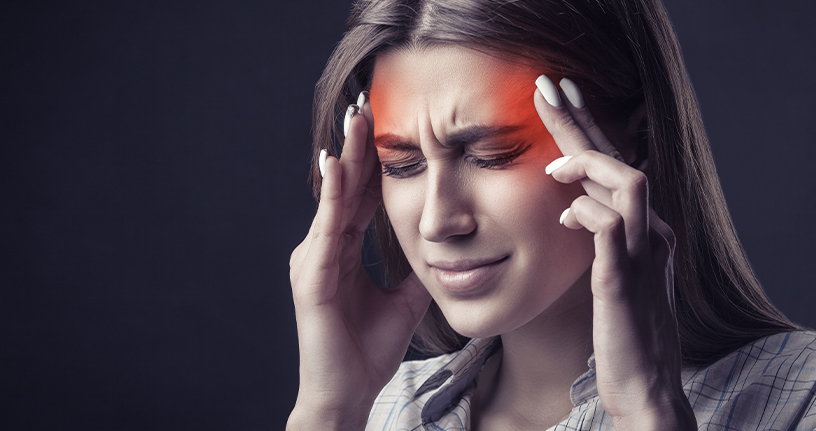A wide range of supplements are marketed to help reduce or control migraine headaches. Only a few scientific studies have shown that the use of some supplements is safe and effective for reducing migraine symptoms.
Migraine can affect men, women, and children. But it is not an equal opportunity disorder. Of those who suffer from chronic attacks of migraine, the vast majority are women. What causes migraines in females? Well, hormonal changes, specifically hormone fluctuations and estrogen that happen during menstrual periods, perimenopause, and pregnancy, can contribute to a migraine attack. Other migraine causes that are common in men and women include the use of certain medications, alcohol consumption, too much caffeine intake, and stress.
If you are dealing with any type of migraine, including ocular migraine, abdominal migraine, or typical headaches, you may be aware of the throbbing or pulsing pain that can put a damper on an otherwise good day. Doctors prescribe the best medicines for headaches when you provide detailed info on migraine hazards or episodes you experience. While migraine prevention medication can help you manage the condition, there can be side effects. This is why some people with migraines prefer to choose headache natural remedies. If you are looking for dietary supplements, the options below can be for you.
Supplements for migraine prevention
Dietary supplements are commonly used to prevent migraine disease symptoms. The recommended supplements have all been studied and found to be effective in migraine prevention. If you are pregnant or have other medical conditions, it is important to check with a healthcare professional about whether you should take these to relieve migraines and vertigo.
-
- Magnesium
Low levels of magnesium are associated with migraine. According to research studies, individuals dealing with frequent migraine headaches and allergies, particularly those who have migraine with aura, tend to have low magnesium levels in their brain tissue. Magnesium plays a crucial role in energy production and muscle and nerve function. It is considered to have natural anti-inflammatory effects. Consuming enough dark green vegetables, seeds, and nuts daily is tough to elevate magnesium levels in the body.
Dose: 600 mg per day. Some individuals prefer to begin at a lower dose to ensure tolerability.
Formulations: Magnesium is available in several forms, including magnesium citrate, magnesium hydroxide, magnesium citrate, and magnesium glycinate.
Side effects: It may cause diarrhea or soft stools, but it could be effective in constipation.
-
- Coenzyme Q10
Also termed CoQ10, it is an antioxidant that is produced in our bodies and plays a crucial role in energy metabolism. Research has shown that at moderate doses, Coenzyme Q10 is generally well tolerated, safe, and effective in reducing headache frequency and disability.
Dose 300 mg day (can be split into 150 mg twice daily)
Side effects: fatigue, insomnia, nausea, or diarrhea.
-
- Riboflavin:
Riboflavin, or vitamin B2, is the most frequently studied supplement in children and adolescents with migraines. However, this type of vitamin is quickly eliminated and may need to be taken 2 or 3 times daily for best effects. It should always be taken with food.
Dose: 400 mg per day
Side effects: Urine turns bright yellow/orange and may contribute to diarrhea
-
- Feverfew
Feverfew is a natural herb sometimes used to prevent migraines. Its active component, parthenolide, may prevent migraine headaches through its vascular smooth relaxation and anti-inflammatory properties. Feverfew can interact with multiple medications; please inform your healthcare provider before taking it. It has not been studied in children, as migraine treatment is recommended for use in migraine prevention.
Dose: 50 to 300 mg twice a day
Side effects: Blating, nausea, and mouth ulcers. The herb can also contribute to uterine contraction and is prohibited during pregnancy.
-
- Vitamin D:
No research studies show the beneficial effects of migraines on patients. However, several studies show the effectiveness of vitamin D for pain conditions.
-
- Melatonin:
The pineal gland in the brain naturally produces melatonin and plays an important role in initiating and sustaining sleep. It comes out to be extremely beneficial in several migraine headaches, including ocular migraine, when taken nightly. Improved sleep and anti-inflammatory and anti-pain properties are thought to relieve headaches in melatonin individuals. Melatonin is also thought to induce positive effects on other brain parts involved in headache disorders. It has mixed results for migraine prevention.
-
- Butterbur:
Butterbur root extract contains a substance that is purified to treat asthma, migraines, and allergies. Generic versions have been found to contain chemicals that cause damage to the liver and carcinogens, even with brands like Peradolex. Thus, it is no longer recommended for use in migraine prevention.
Conclusion
Nutrition is one of the most powerful sources of antioxidants. As mentioned above, three of the most important nutrients for fighting oxidative stress are riboflavin, magnesium, and coenzyme Q10. The right diet is a good initial step to help provide these nutrients and fulfill the antioxidant tanks in deficient people. Moreover, supplements contain nutrients that can benefit a healthy body and manage some health conditions, including migraines, so consulting a healthcare professional is important before taking them.




